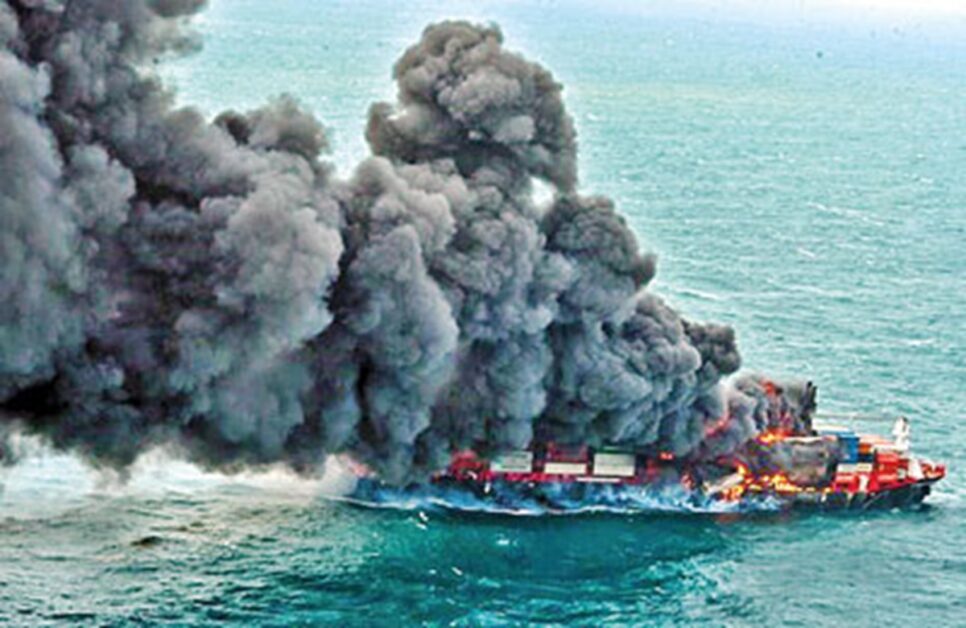Defects in the current legal and regulatory frameworks, as well as in the readiness and response mechanisms of pertinent authorities, have been exposed by investigations conducted by the Parliamentary Select Committee (PSC), which was established to look into the tragedies brought on by the New Diamond and X-Press Pearl shipwrecks.
The X-Press Pearl tragedy in particular “exposed critical gaps in the country’s ability to prevent and manage maritime pollution incidents,” according to the PSC’s report, which was delivered to Parliament last month before it was dissolved. The Committee also discovered that the economic and environmental harm had been made worse by a lack of coordination across government entities and delays in court cases. Additionally, according to the PSC, one of the main weaknesses was the absence of established procedures for involving local people in disaster response activities.
According to the research, Sri Lanka’s marine ecology has suffered significant and enduring harm as a result of the two calamities. The events resulted in widespread contamination, including dangerous chemical and oil spills, which have affected coastal ecosystems, marine life, and nearby communities that depend on these resources.
Delays and shortcomings characterized the reaction to both disasters, especially with regard to prompt measures to lessen the environmental damage. According to the report, “the lack of resources and lack of preparation were noted as critical shortcomings in managing these crises.”
The necessity of holding those responsible for the damage caused by these tragedies accountable is emphasized in the report. It also emphasizes how crucial it is to guarantee sufficient restitution for Sri Lanka’s economic and environmental losses, especially the livelihoods.
The PSC notes that there was a noticeable lack of public awareness and participation in the disaster response and compensation processes, and it calls for increased openness and public input in future environmental and maritime governance.
Given that handling the disasters presented substantial international, legal, and diplomatic challenges—particularly with regard to the jurisdiction of legal proceedings and the enforcement of compensation claims—the report recommends that Sri Lanka improve its standing in international maritime law and disaster management.
The creation of a Ministry specifically for Sri Lanka’s oceans and the consolidation of marine organizations under a single administrative structure to enhance cooperation in times of crisis are two of the report’s main suggestions. Additionally, the Committee has noted.







